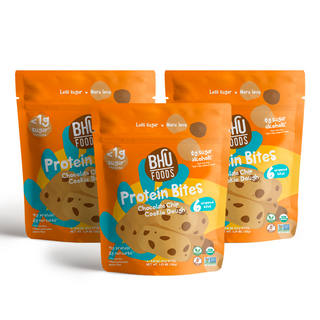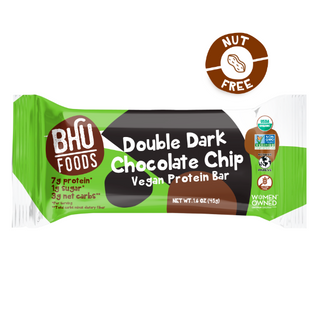
Flaxseed Benefits: How this “Wonder Food” Contributes to Your Health
When it comes to building a well-rounded diet that contributes to your overall health, there is a lot to consider. Starting from the ground up, it is important to build a food hierarchy that is tailored to meet your body’s nutritional needs. Of course, there are the basic food groups to factor in, however, it is often easy to overlook those power foods that we don't learn about from day one. These “power” foods, such as super berries, legumes, seeds, and nuts supply our body with multiple benefits, ranging from energy boosts to digestion aides. One such superfood that you may not be familiar with is Flaxseed—a plant food that has been making headlines lately for having a huge impact on long-term health. In this article, we break down what flaxseed really is, how it contributes to your health, and how it can easily be added to your daily diet.
Flaxseed Benefits for Your Diet
So, what is flaxseed exactly? It is a superfood that has been around since early 3000 BC, and it has been used for nutritional and medicinal purposes in Mediterranean cultures for thousands of years. Flaxseed has become a popular food staple in the US and can be consumed in a few different ways, however, you will most commonly see flaxseed in a ground consistency, or you might also come across flaxseed oil which is made by crushing flaxseed. Flaxseed and flaxseed oil contain essential omega-3 fatty acids, and adding flaxseed or flaxseed oil to your diet could ultimately contribute to decreased cholesterol levels and long-term heart health.
The flaxseed benefits are continuously being studied, and there is emerging evidence that consuming flaxseed can have multiple benefits on your health. Flaxseed’s healthy reputation stems from a few of its healthy components, primarily fatty acids, lignans, and fiber. The good fats that you find in flaxseed can have several heart-healthy benefits, and each tablespoon of ground flaxseed has close to 1.8 grams of plant omega-3s. Flaxseed has lignans which contain plant estrogen and antioxidant qualities, and traditionally have been studied to have health benefits that lower the risk of heart disease, menopausal symptoms, osteoporosis, and breast cancer. Another important element found in flaxseed is fiber. Fiber is important because it helps the body regulate and use sugar, keeping hunger at bay and blood sugar stable. Fiber also assists with digestion and can prevent or relieve constipation. These are just a few key components in flaxseed that contribute to your overall health.
So how can you implement flaxseed or flaxseed oil into your diet? Flaxseed isn’t a common item that you see regularly on menus at restaurants. You may have to do some searching to locate it at the grocery store. Once you start adding flaxseed into your daily routine, you’ll find it is easier than you think to consume daily. Many experts recommend ground flaxseed because it is easier to digest this way, and you are more likely to gain all of its nutritional benefits when it is in its ground form. You can buy it in bulk, ground or whole, and whole flaxseed seeds can easily be ground in a food processor.
Try some of the following suggestions in your diet:
- Sprinkle a tablespoon of ground flaxseed on your yogurt, mixed with granola and fresh fruit.
- Mix ground flaxseed with hot or cold cereal or oatmeal.
- Stir some ground flaxseed in with your favorite condiments, such as mustard or mayo.
- Add ground flaxseed into your favorite baked goods, such as banana bread, brownies, cookies, or muffins.
- Mix a tablespoon of ground flaxseed into your daily serving of yogurt or add it to a smoothie or smoothie bowl.
If you are unsure about the amount or consistency of flaxseed in your diet, you can consult with your doctor or dietician to find the right amount that works for you. If you are pregnant or breastfeeding, it is best to ask your physician before consuming flaxseed.
It is never too late to start getting creative with adding nutrients into your diet, and finding simple ways to add "power foods" to the foods that you already consume daily is a great place to start! Flaxseed is a powerful plant food that has been shown to benefit your heart and gut health, with several ongoing studies that are looking into the flaxseed benefits on preventing cancer, stroke, heart disease, menopausal symptoms, and more. Keep a jar handy and add a sprinkle of ground flaxseed onto a few of your favorite foods. Maybe start small and try adding it to your morning smoothie or favorite breakfast food just once a day. Small additions of superfoods like flaxseed can pack a big punch and add plenty of nutritional value into your diet, with huge benefits on your overall long-term health.














































